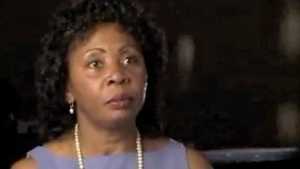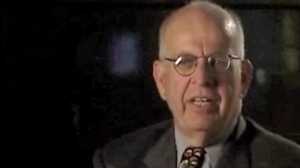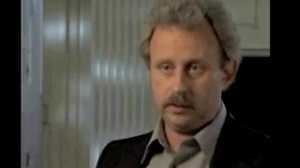Producer David Grubin
An interview with David Grubin, producer of Abraham and Mary Lincoln: A House Divided.
Transcript
Well, I've been in this business for almost 35 years now. I started on the technical side. I started as an assistant cameraman, and then I became a cameraman, and I'd shoot for other people, and gradually, I started making my own films and shooting my own films, and now I don't do very much shooting, I do all producing.
Well the thing about the Lincoln story is that a lot of it really predates photography. The first picture that was ever taken of Lincoln is he's already 37 years old. Our job was to evoke the past without the images, so you need to, without the photographs, and so you need to find, I guess you'd say correlates to emotional states, so how does Abraham Lincoln meet Mary Todd Lincoln for the first time. They meet at a dance. Well, how then do you film a little party? We got period instruments and we filmed them in a way that evoked the liveliness of the occasion. We spun them around and the world seemed to spin as it might when you're meeting the woman you love. So how do you give the feeling of Mary Lincoln at home, frightened, with Lincoln away, sort of worried, she's sort of nervous he's away. She doesn't like it. Well when you learn that she was frightened of thunder storms, then you create a thunder storm over her house, and it's their house and so that evokes the woman inside.
The Lincoln film is a dual biography. It's not really only about Abraham Lincoln, it's about Abraham Lincoln and Mary Todd Lincoln. And I find that exciting because when you get to know the woman that Abraham Lincoln loved, you get to know him in a new way because I don't really think you can understand a man until you understand who he loves, and why he loves.
I think the challenge in doing a dual biography is to keep both characters center stage and to not feel that when one character's on the stage that you've forgotten all about the other one. And to make one scene, which may be about one character link to the next scene which may be about the other character. And then bring them together. So you need to find a way of writing it that has a rhythm to it, particularly a story featuring Abraham Lincoln because he carries so much freight. He's such a great man and a great president, I really believe that, that he can overwhelm anybody, and so she plays a very important role in his story. We don't want, we didn't want to lose her, but he also plays an important role in her story, and we wanted people to begin to understand her.
Well what we were interested in, in this film, was their relationship, and what that revealed about him, but also about her. About what we were, what we focused on was the domestic Lincoln, the family, the children. Now not to say that there wasn't this great, terrifying war raging all around them. What's interesting to me about it, is the story begins as a kind of, the Lincoln story begins as a kind of domestic drama. A man meets a woman, he proposes and he gets cold feet. Why does he get cold feet? They get back together again. They get married, have children. They're ambitious, struggling to get somewhere. They'd be, finally he's elected president of the United States. They both have what they want. The whole country falls apart. And now they're in the larger drama, the larger world. And so their small story, the intimate story, opens up into a huge story, the story of America.
Well, I wrote this with Geoff Ward, and it is great fun to collaborate with Geoff. I write most of the things myself, but Geoff and I have tried it a couple of times and it's worked really well. And when we sat down to write it, we were asked to write four hours. That's what people thought we could afford to produce, and we were surprised to find that we couldn't help but write six hours. And when people read it, they said, yes it is six hours. It will be very hard to cut this down and we were able to wait and find the rest of the funds. So we surprised ourselves by finding that it had to be a six-hour story to do it right, and we were glad that everyone agreed.
When you think about Abraham Lincoln, when you grow up with Abraham Lincoln, it's very hard to think about him as a flesh and blood human being. He's a great emancipator, the man who freed the slaves. He is the self-made man who pulled himself up by his own bootstraps, the embodiment of the American dream. He saved the union. These are extraordinary things. These things are true.
For Lincoln, I think my affection for him that I began with turned into some kind of deep and profound love. He was a great man and you feel that somehow. I have to say he wasn't only a great president, he was a great man and you feel that about him. But somehow as you work with him, you're captured by him. He has a deep soul.







